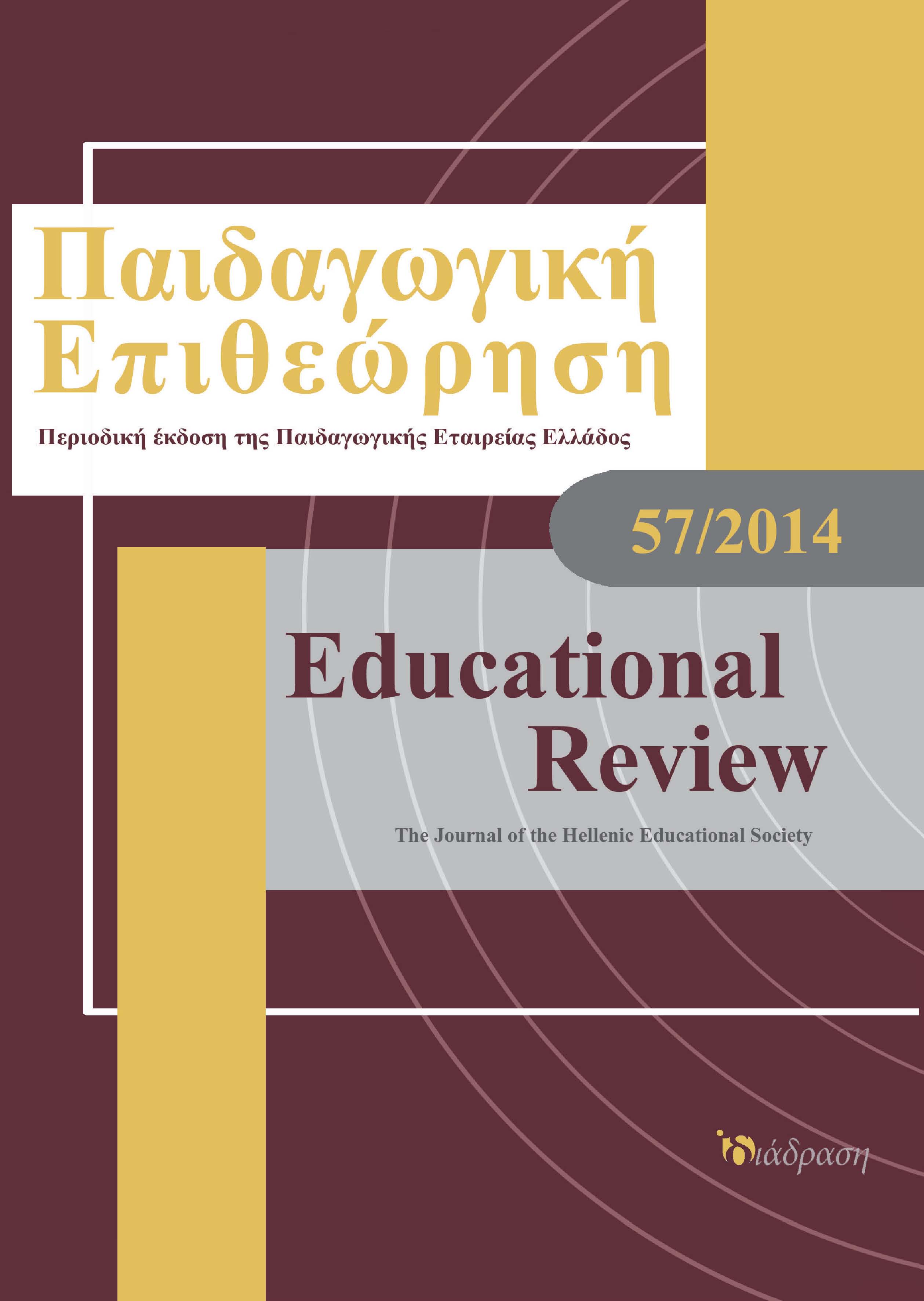Παιδική ηλικία και παιδαγωγική θεωρία στην Ελλάδα (18ος αι.- Μεσοπόλεμος): από τη θεωρία του 'μικρού ενήλικα' στη διδασκαλία της 'ψυχολογίας του παιδιού'
Main Article Content
Περίληψη
During the end of the 18th and the first half of the 19th century, the dominant approach towards ‘childhood’ in Greece is that of the ‘small adult’. At the second half of the 19th century the educators –proponents of Herbart's Psychology and Pedagogy– attempt to explain this construction theoretically. At the beginning of the 20th century, childhood is increasingly defined as a field of scientific research and study –mainly in the areas of Medicine and Hygiene. In the same period of time, important Greek educators refer to the physical and intellectual development of children, influenced by the principles of ‘New Education’. Also, the ‘Experimental Pedagogy’ and the ‘child’s psychology’ was first discussed in Greece. The aim of this paper is to record the development of educational approaches to child and childhood in Greece from the 18th century up to the fist half of the 20th century. In this context educational texts from the period have been studied in order to investigate the content that is attributed to the terms ‘child’ and ‘childhood’ by Greek educators of the time.
